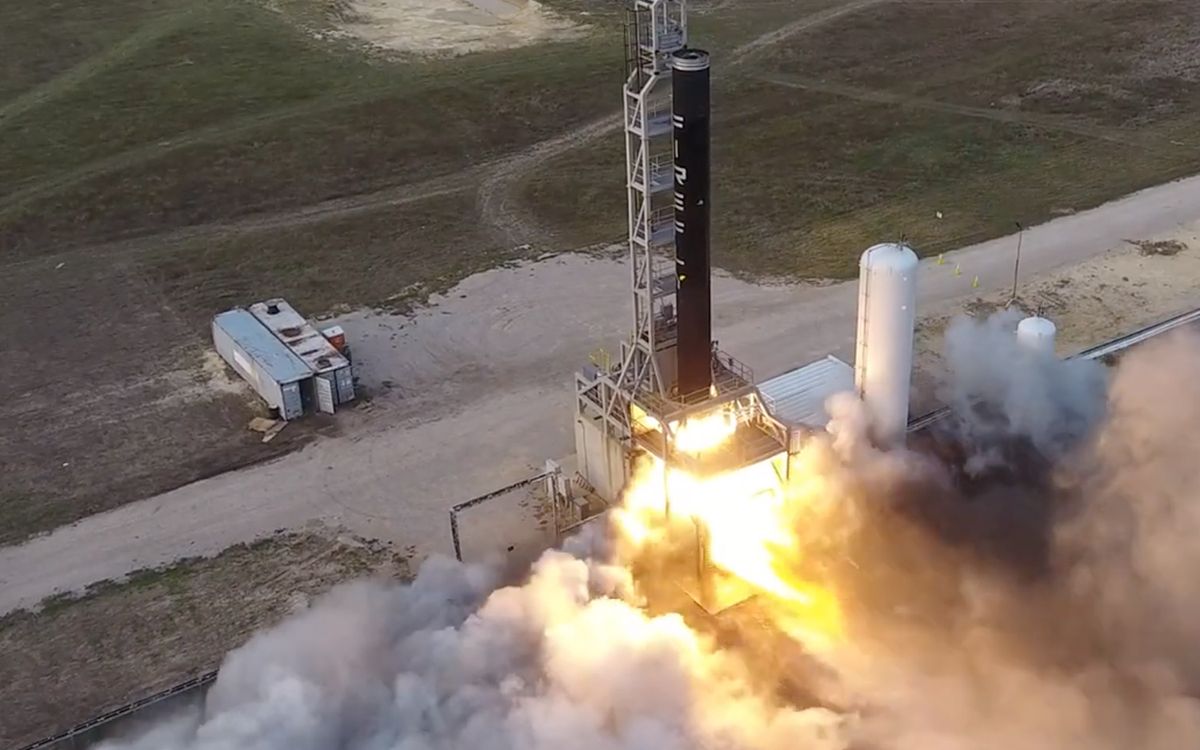An epic set of new videos shows the fiery power of Firefly Aerospace’s forthcoming Alpha rocket.
The company showed off first-stage testing, which will certify Alpha for a test flight this fall, in new YouTube videos which include drone footage, fixed ground footage and a mix of cameras that also show off the engines swiveling to test maneuvers during flight.
“Today we performed a test of the Alpha flight first stage,” the startup company said on Twitter Sept. 20. “The four Reaver engines performed 35 seconds of thrust vector control maneuvers, challenging the flame deflectors to constrain all that Reaver power. Today’s test was a major step in Firefly’s march to first flight.”
The two-stage Alpha rocket was supposed to make its debut earlier in 2020, but physical distancing and shipping delays related to the novel coronavirus pandemic delayed that timeline, company representatives told Space.com in August.
“Over the last few months, there have been even more challenges than we usually have in this industry,” Robb Kulin, Firefly’s chief operating officer, said at the time. Despite these obstacles, the company passed several key milestones to compete in the fast-growing small rocket industry, including shipping the Firefly mobile launch stand from Texas to its destination at Vandenberg Air Force Base in California.
Firefly Aerospace arose after a predecessor entity, Firefly Space Systems, entered bankruptcy protection in 2016 due to a major investor pulling out due to Brexit. The company has been expanding rapidly, including a $52 million investment in 2019 that included starting a second launch site at Cape Canaveral, Fla. Other ongoing projects include developing a larger rocket called Beta and a robotic moon lander that will support NASA’s Commercial Lunar Payload Services program.
The 1.1-ton Alpha rocket is expected to launch missions for roughly $15 million apiece, compared to the larger SpaceX Falcon 9 booster that generally launches for $62 million. Alpha’s first mission will carry satellites as part of Firefly’s Dedicated Research and Education Accelerator Mission, which aims to bring payloads to space for no cost to the participants.
Customers for the second and third flights have yet to be announced, but Firefly has said it expects to run those missions in 2021.
Source: Space.com
